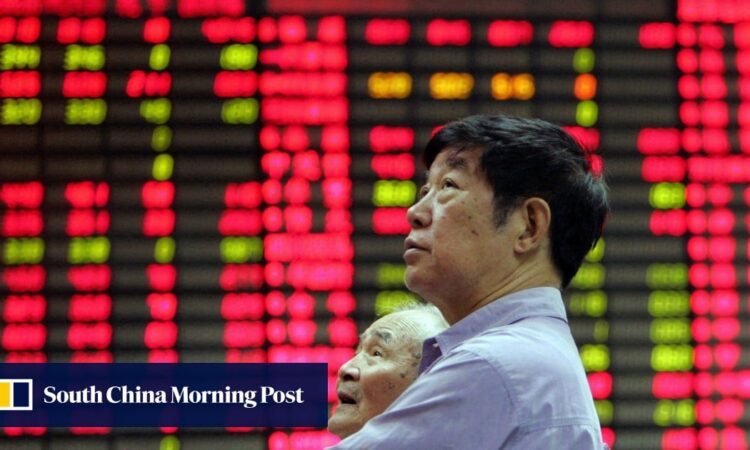Global fund managers build ‘significant exposure’ to Chinese stocks in sentiment shift, HSBC says

Global investors have turned more constructive on Chinese stocks and “have built significant exposure to mainland equities”, investment bank HSBC said in a report after a flurry of steps taken by the regulator sparked a 10 per cent rebound from a February low in China’s CSI 300 Index, a benchmark comprising 300 of the largest companies listed on the Shanghai and Shenzhen stock exchanges.
“GEM [global emerging markets] funds have rolled back on their underweight [position] on mainland China and turned neutral, while Asia’s funds exposure on the market is now at a seven-month high,” said the bank’s team of strategists led by Herald van der Linde in a report published on Thursday. “This has come at the cost of a significant cut in allocation in Taiwan.”

Goldman Sachs wealth-management executive warns against buying Chinese stocks
Goldman Sachs wealth-management executive warns against buying Chinese stocks
While sentiment has improved, fundamentals remain as a key concern for global investors. Both retail sales and industrial production trailed the consensus projections last month and the downturn on the property market, which roughly made up about a quarter of China economy, continued. This led some economists including those at Nomura Holdings to warn that growth may have peaked in the first quarter of the year.
Both emerging markets and Asian funds have cut their positions in Taiwan stocks, where tech companion such as Taiwan Semiconductor Manufacturing make up a big chunk of weightings and tend to mirror the performance of their peers in the US, HSBC said in the report. Asian funds have also pared their bets on Indian stock and stayed underweight, while increasing holdings of Korean stocks to a five-year high due to the nation’s value-up programme.
On the whole, Asian stocks have recorded outflows so far this month as rising US Treasury yields and a stronger US dollar weighed on sentiment, according to the report. Taiwan has borne the brunt with net sales of US$6.8 billion, with India and China also seeing outflows, while South Korea is set for a sixth straight month of inflows and Japan is on course for a fourth consecutive month of net buying, it said.


